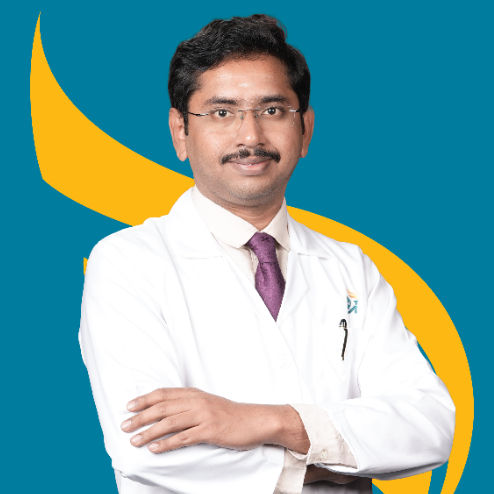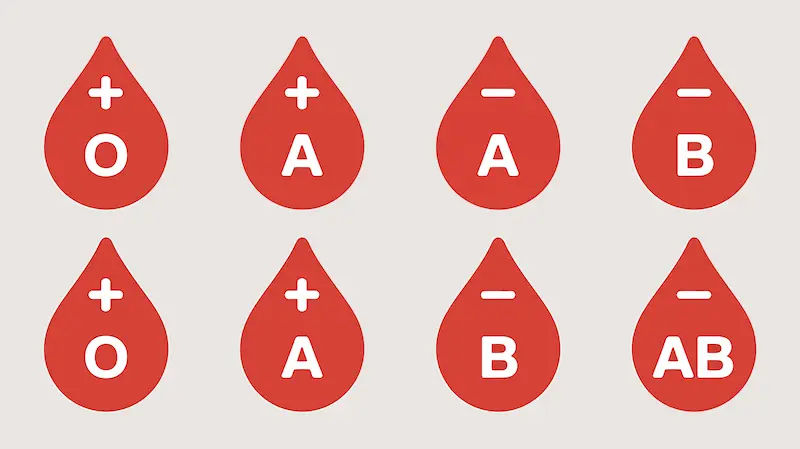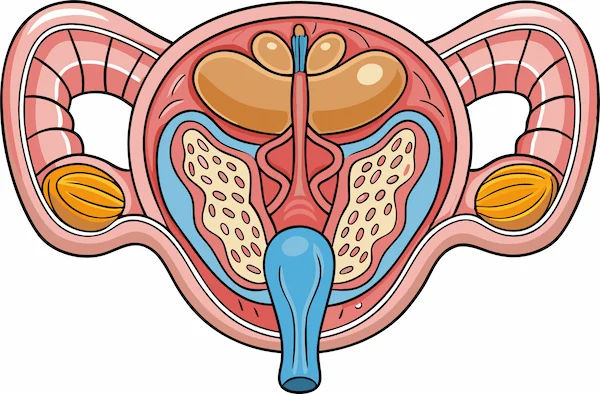HPV vs Herpes: Key Differences Explained by Our Doctor
Confused about hpv vs herpes? Our doctor explains std differences in symptoms, testing, risks, and treatment—plus prevention tips and FAQs.


Introduction: Why Understanding HPV vs Herpes Matters
If you’re searching for “HPV vs herpes” or trying to understand “STD differences,” you’re not alone. Human papillomavirus (HPV) and herpes simplex virus (HSV) are among the most common sexually transmitted infections worldwide. Both can spread through skin-to-skin contact and may cause symptoms on the genitals or mouth. However, they are caused by completely different viruses, behave differently in the body, and require different approaches to management and prevention.
Understanding these differences is crucial—not only for recognising symptoms but also for reducing transmission, choosing the right tests, and protecting your long-term health and that of your partner. With accurate information, you can manage either infection effectively and live a healthy, confident life.Consult a Top Andrologist for Personalised Advice
HPV vs Herpes: The Viruses at a Glance
HPV (Human Papillomavirus)
• A large family of over 100 related viruses, with at least 40 types affecting the genital and oral regions. • Low-risk types can cause genital warts.
• High-risk types can lead to cancers such as cervical, anal, penile, vulvar, vaginal, and certain throat cancers.
• HPV infects the skin and mucous membranes and may remain silent for years before showing effects.
Herpes (Herpes Simplex Virus, HSV)
Let us know about the herpes:
There are two main strains: HSV-1 and HSV-2.
• HSV-1 typically causes oral herpes (cold sores), but can also cause genital herpes.
• HSV-2 is the main cause of genital herpes.
• Once infected, the virus remains dormant in nerve cells and can reactivate periodically, causing recurrent outbreaks.
Are They Curable?
Let's see some key points about whether HPV & Herpes are curable or not?
HPV
• Most HPV infections clear naturally within 1–2 years, especially in younger people.
• There is no specific cure, but the immune system often eliminates the virus.
• Vaccination offers powerful prevention against the most harmful HPV types.
Herpes
• No cure currently exists.
• The virus stays in the body for life, though antiviral medication can suppress outbreaks and reduce transmission.
• With treatment and care, most people with herpes lead normal, healthy lives.
How They Spread: Key STD Differences?
Let us see how they spread and risks associated with it:
HPV Transmission
• Spread through skin-to-skin sexual contact (vaginal, anal, oral, or genital-to-genital).
• Transmission can occur without visible symptoms or warts.
• Condoms and dental dams reduce risk but do not fully prevent infection since HPV can infect uncovered skin areas.
Herpes Transmission
• Spread via direct contact with sores, saliva, genital secretions, or skin shedding the virus.
• Can spread even without visible blisters (asymptomatic shedding).
• Using condoms, dental dams, and daily antivirals helps lower risk but doesn’t eliminate it.
Symptoms: What You Might Notice
The key symptoms of HPV and Herpes include:
HPV Symptoms
• Most people have no symptoms and remain unaware they’re infected.
• Genital warts:
o Appear as flesh-coloured or greyish bumps, single or multiple, sometimes resembling cauliflower.
o Usually painless, though they may itch slightly.
o It can appear weeks or months after exposure.
• Cell changes:
o High-risk HPV types can cause abnormal cervical or other cell changes detected through screening, not visible symptoms.
Herpes Symptoms
• First outbreak often more severe:
o Painful blisters or ulcers on the genitals, anus, thighs, or mouth.
o Tingling, itching, or burning before sores appear.
o Fever, swollen glands, and general discomfort are common during initial infection.
• Recurrent outbreaks:
o Usually milder and shorter than the first.
o Triggers can include stress, illness, friction, or sun exposure (for oral herpes).
• Timing:
o Symptoms may show 2–12 days after exposure, though many people never notice clear signs.
Diagnosis and Testing: What to Expect?
The diagnosis and testing include:
HPV Testing
• No universal test exists to detect all HPV infections.
• Cervical screening involves:
o Pap test – checks for abnormal cervical cells.
o HPV test – detects high-risk types that may cause cancer.
• Screening may vary by country and age group.
• For men, routine HPV testing is not standard; visible warts are diagnosed by clinical examination.
• Anal or throat HPV screening may be recommended for specific high-risk groups (e.g., men who have sex with men or immunocompromised individuals).
Herpes Testing
• If sores are present:
o A swab (PCR or NAAT test) from a lesion is the most accurate method to confirm infection and determine the virus type (HSV-1 or HSV-2).
• If no sores are visible:
o Type-specific blood tests can detect antibodies but may yield false positives, particularly in low-risk individuals.
• Always consult your clinician about whether herpes testing is appropriate for you.Get Your Health Assessed
Treatment and Management
HPV Management
• Genital warts:
o Treated using prescription creams, cryotherapy (freezing), laser therapy, or minor surgical removal.
o Treatments eliminate visible warts but not the virus itself, and recurrence can happen.
• Cervical or cell changes:
o Managed according to screening results; some cases are monitored, others are treated by removing abnormal cells.
• HPV vaccination:
o Protects against the most common high-risk and wart-causing types.
o Recommended for pre-teens (around ages 11–12) with catch-up vaccination up to age 26.
o Adults aged 27–45 can discuss potential benefits with their clinician.
o The vaccine prevents new infections, not existing ones.
Herpes Management
• Antiviral medications:
o Drugs such as acyclovir, valacyclovir, or famciclovir reduce outbreak duration and discomfort.
o Daily suppressive therapy helps decrease outbreak frequency and transmission risk.
• Self-care during outbreaks:
o Keep affected areas clean and dry.
o Wear loose clothing and use mild pain relievers if needed.
o Avoid sexual activity from the onset of symptoms until full healing.
Longer-Term Risks and Complications
Long term risks and complications include:
HPV
• Most infections resolve naturally without long-term effects.
• Persistent infection with high-risk HPV may cause precancerous or cancerous changes in the cervix, anus, or throat.
• Regular screening ensures early detection and treatment.
• Genital warts are benign but may cause discomfort or distress due to recurrence or appearance.
Herpes
• In otherwise healthy individuals, herpes is typically manageable.
• People with weakened immune systems may experience longer or more severe outbreaks.
• During pregnancy, genital herpes can be transmitted to a baby during delivery. Antiviral medication or a Caesarean section may be advised if active lesions are present.
• The emotional impact and stigma surrounding herpes are often greater than the physical symptoms. Accurate information and support make coping easier.
Prevention: Practical Steps You Can Take
Practical steps you can take includes:
• Get vaccinated against HPV if eligible.
• Use condoms and dental dams consistently and correctly; they lower the risk for both HPV and herpes.
• Avoid sexual contact during herpes outbreaks or when genital warts or sores are visible.
• Consider daily antivirals if you or your partner has genital herpes, especially in mixed-status relationships.
• Limit the number of sexual partners and get regular STI screenings.
• Avoid sharing lip products during oral herpes flare-ups.
• Stay up to date with cervical cancer screening and follow local health guidelines.
Quick Side-by-Side: HPV vs Herpes STD Differences
Special Considerations
Some special consideration conditions include:
Pregnancy
• HPV:
o Genital warts seldom affect childbirth.
o Continue cervical screening per national guidelines.
• Herpes:
o Inform your obstetric provider about your herpes history.
o Suppressive antivirals in late pregnancy may prevent outbreaks.
o A C-section may be recommended if sores are present at delivery.
Oral Sex
• Both HPV and HSV can spread through oral sex.
• Using barriers (condoms or dental dams) and avoiding oral contact during outbreaks reduces risk.
Discussing with Partners
• Open and honest communication helps build trust and reduce stigma.
• Share information about your infection, testing history, and prevention plans.
• Many couples manage these infections successfully with transparency and shared decision-making.
When to See a Doctor
See a doctor in below conditions:
• New genital, anal, or oral sores, bumps, or warts appear.
• Painful urination, genital pain, or recurrent sores develop.
• You need guidance on HPV vaccination or cervical cancer screening.
• You or your partner has herpes, and you want to discuss suppressive therapy.
• You are pregnant and have a history of genital warts or herpes.
Conclusion
Both HPV and herpes are widespread but manageable infections. Understanding the distinctions between them—how they spread, what symptoms to watch for, and how to prevent or manage them—empowers you to take charge of your sexual health. HPV is largely preventable through vaccination and regular screening, while herpes can be effectively controlled with antiviral therapy and self-care. Open communication with partners and clinicians ensures protection, support, and peace of mind. Early action, honest conversations, and accurate information remain your best defences against both infections.Consult a Top Andrologist for Personalised Advice
Consult a Top Andrologist for Personalised Advice

Dr. Amvrin Chatterjee
Urologist
10 Years • MBBS, MS, DNB, MCh
Kolkata
Apollo Multispeciality Hospitals , Kolkata, Kolkata

Dr. Gaurab Dasgupta
Urologist
14 Years • MBBS, MS General Surgery, MCH Urology, FMAS
Kolkata
MCR SUPER SPECIALITY POLY CLINIC & PATHOLOGY, Kolkata

Dr. Sreeparna Roy
Obstetrician and Gynaecologist
8 Years • MBBS , MS (OBSTETRICS & GYNAECOLOGY), Fellowship in Infertility, Endoscopy & Ultrasonography), Fellowship in Laparoscopy & Hysteroscopy,DRM
Kolkata
Dr Utsa Basu Clinic, Kolkata

Dr. Anand Ravi
General Physician
2 Years • MBBS
Bengaluru
PRESTIGE SHANTHINIKETAN - SOCIETY CLINIC, Bengaluru

Dr R Vishnuraja
Andrology
8 Years • MBBS (2012), Madurai Medical College, Madurai; MS (General Surgery) (2017), Maulana Azad Medical College, New Delhi; MCh (Urology) (2021), Kilpauk Medical College, Chennai
Madurai
Apollo Speciality Hospitals KK Nagar, Madurai
Consult a Top Andrologist for Personalised Advice

Dr. Amvrin Chatterjee
Urologist
10 Years • MBBS, MS, DNB, MCh
Kolkata
Apollo Multispeciality Hospitals , Kolkata, Kolkata

Dr. Gaurab Dasgupta
Urologist
14 Years • MBBS, MS General Surgery, MCH Urology, FMAS
Kolkata
MCR SUPER SPECIALITY POLY CLINIC & PATHOLOGY, Kolkata

Dr. Sreeparna Roy
Obstetrician and Gynaecologist
8 Years • MBBS , MS (OBSTETRICS & GYNAECOLOGY), Fellowship in Infertility, Endoscopy & Ultrasonography), Fellowship in Laparoscopy & Hysteroscopy,DRM
Kolkata
Dr Utsa Basu Clinic, Kolkata

Dr. Anand Ravi
General Physician
2 Years • MBBS
Bengaluru
PRESTIGE SHANTHINIKETAN - SOCIETY CLINIC, Bengaluru

Dr R Vishnuraja
Andrology
8 Years • MBBS (2012), Madurai Medical College, Madurai; MS (General Surgery) (2017), Maulana Azad Medical College, New Delhi; MCh (Urology) (2021), Kilpauk Medical College, Chennai
Madurai
Apollo Speciality Hospitals KK Nagar, Madurai
More articles from General Medical Consultation
Frequently Asked Questions
Q1: Is HPV the same as herpes?
No. HPV and herpes are caused by different viruses. HPV includes many strains that cause warts or cancers, while herpes (HSV-1/HSV-2) causes recurrent sores. Understanding the distinction helps ensure the right testing and care.
Q2: Which is more serious—HPV or herpes?
They carry different risks. Herpes is lifelong but usually mild and manageable. HPV typically clears on its own, but high-risk types can cause cancer if persistent and untreated—making screening and vaccination vital.
Q3: Can I have both at the same time?
Yes, co-infection is possible. The same preventive measures—barriers, avoiding contact during symptoms, and HPV vaccination—help reduce overall risk.
Q4: How are they tested?
HPV testing is done via Pap and HPV tests for the cervix; there’s no full-body HPV test. Herpes is confirmed by a PCR swab from sores or, in some cases, a blood test.
Q5: Can condoms or vaccines prevent them?
Condoms and dental dams lower but do not eliminate risk for both. There is an effective HPV vaccine, but no herpes vaccine yet. Herpes transmission risk can be reduced with daily antiviral therapy.





